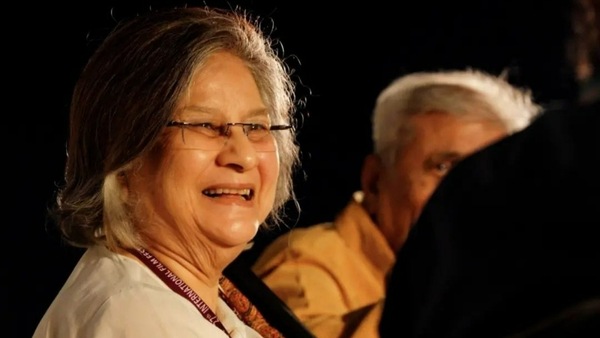Malti Sahai at IFFK 2022: In the hands of motivated people, film festivals can be, and are, very meaningful
Malti Sahai attended a discussion conducted at Sree Kairali theatre, as part of IFFK 2022.

Last Updated: 08.43 AM, Dec 12, 2022
Through being a part of the directorate of film festivals in India for over a decade, there are few who know better than Malti Sahai when it comes to the evolution of film festivals in the country. Malti was one of the speakers who attended the discussion on Film Festivals Then and Now, which was held as a part of International Film Festival of India(IFFK). The discussion, held at Sree Kairali theatre in Thiruvananthapuram, also saw filmmakers Shaji N Karun and Jabbar Patel in attendance.
In an enlightening discussion, Malti gave a simple overview of the film festival scenario in the country. In India the film festivals can either be competitive or they can be non competitive, and most of the festivals in the country are accredited by International Federation of Film Producers Associations(FIAPF).FIAPF accreditation is something organisers of film festivals try to go in for, as sans that accreditation people tend to have the notion that that particular festival is not up to standard. IFFK has also received accreditation as well.
The directorate of film festivals came to Kerala more than a decade ago. The festival had been travelling to different regions already, without accreditation at the time.
Recounting the first time she came to Kerala for the film festival, Malti said“ We used to carry cans of hundreds of films, from Delhi to Kerala. We landed at the station, and the first problem was there was a union for picking up the cans.
We guarded these cans with our lives, because if anything happened to any print, that would be the end of that film. So only the director unit was allowed to touch them even”.
Malti went on to list out the different sections of the International Film Festival of India, including Cinema of the World, Indian Panorama section etc. The first films of both Jabbar and Shaji were selected for the panorama section, a section that helped recognise and promote a number of talents from India.
Malti said “ After years passed and we witnessed more and more of international cinema, we realised that Asian countries are sending very good films. Nagisa Ōshima was a king, and there were many Asian filmmakers coming with very pertinent filmmakers with whom we could connect”
She also spoke of how she witnessed the rise of women filmmakers, who began to tell stories from the point of view of women.
Malti had been associated with Shaji and Jabbar ever since the duo’s films had been selected for different International film festivals. Shaji’s 1994 film Swaham had received a nomination at Cannes, and she recounted the historic day she and the director attended the event “ I remember the excitement, and after Shaji’s I believe there has not been any Indian film in competition in Cannes at all, which is a sad thing”.
She delightfully recalled how Shaji attended the festival in traditional Kerala attire, complete with mundu. “He was walking in the centre, the cameras centred on him. We were all there shouting ‘Yes Shaji’ and cheering him on. He was the hero of that famous red carpet walk, where other big names in cinema also walked. It made us really proud. Because we were on the red carpet with a film, and not just glamour, which we have plenty of nowadays.
So film festivals are not just entertainment, it can be and is very meaningful, in the hands of the right directors and producers, and in the hands of motivated people who want to contribute towards this medium to society”.
